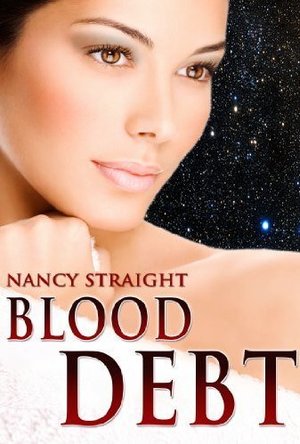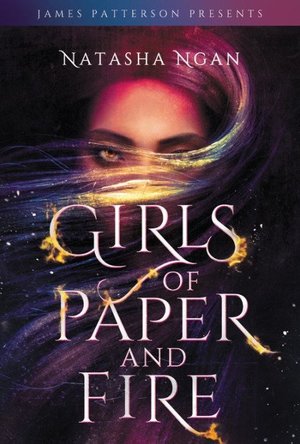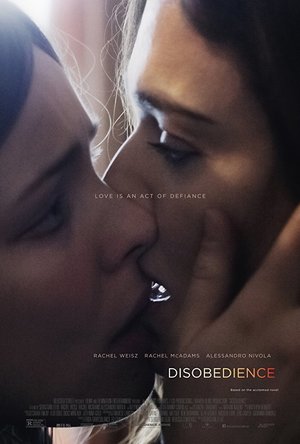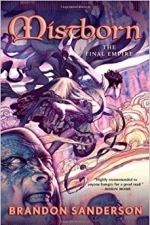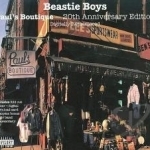Search
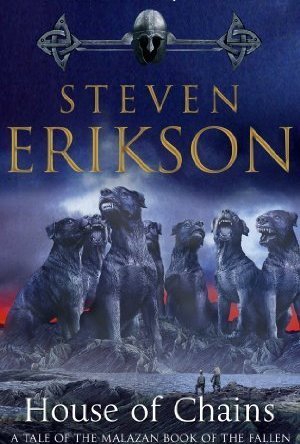
House of Chains
Book
In Northern Genabackis, just before the events recounted in GARDENS OF THE MOON, a raiding party of...
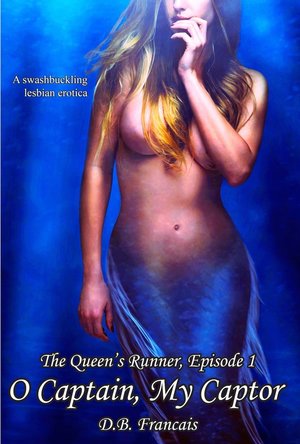
O Captain, My Captor
Book
Introducing a world of high adventure and dark secrets, where the days are filled with wonder and...
lesbian erotica mermaid pirate dubious consent
Morgan Sheppard (1007 KP) created a post
Feb 19, 2024
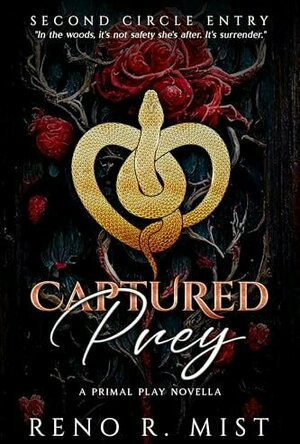
Captured Prey (Second Circle Entry #1)
Book
I want to be hunted…but not by just anyone. No – it must be by the monster I have secretly...
Primal Play Erotica Monster Romance
Merissa (13782 KP) rated Blood Debt (Touched, #1) in Books
Dec 17, 2018
In a genre gone mad about vampires and shifters - and yes, I love them too! - it makes such a nice change to read something that steps away from the 'norm' and takes a more unusual look at things. This is what Nancy Straight does with her Blood Debt. This is the first book so it has a lot of groundwork to do so that you know what is happening. Nancy does this whilst also making it seamlessly part of the story, so you pick up the details without even being aware of it.
The other thing that I have enjoyed as a stand-out in this book, is there is no love-triangle. Gasp, shock, horror! How on earth can a book make it without a love-triangle? Easy - make it a love-square instead!!! This was wonderful to read and there were some real LOL moments as Cami is fighting her guilt and Bianca is trying to encourage her without letting her know that she knows.
The family relationships were quirky and loveable, in most cases. Some were just downright weird. And in the middle of this, you've got Cami. She isn't sure who or what she is, why people seem to have high expectations of her and why she feels like she just isn't who they think she is. Out of her brothers, Beau is my favourite but of course, that's the way it's been written so far.
If you want to read a book about Centaurs, Greek mythology, fantasy then this is the book for you. Personally, I can't wait to get Book 2 and see what happens. There are 4 books in this series and Book 4 is due to be released at the end of January. Definitely recommended!
The other thing that I have enjoyed as a stand-out in this book, is there is no love-triangle. Gasp, shock, horror! How on earth can a book make it without a love-triangle? Easy - make it a love-square instead!!! This was wonderful to read and there were some real LOL moments as Cami is fighting her guilt and Bianca is trying to encourage her without letting her know that she knows.
The family relationships were quirky and loveable, in most cases. Some were just downright weird. And in the middle of this, you've got Cami. She isn't sure who or what she is, why people seem to have high expectations of her and why she feels like she just isn't who they think she is. Out of her brothers, Beau is my favourite but of course, that's the way it's been written so far.
If you want to read a book about Centaurs, Greek mythology, fantasy then this is the book for you. Personally, I can't wait to get Book 2 and see what happens. There are 4 books in this series and Book 4 is due to be released at the end of January. Definitely recommended!
Micky Barnard (542 KP) rated Girls of Paper and Fire in Books
Jan 26, 2019
A fresh YA fantasy
Natasha Ngan created a fascinating world in GIRLS OF PAPER AND FIRE, it was complex and yet not difficult to grasp a hold of. It is a world of castes, paper, moon, steel and demon, with the Demon King at the head. Lei is paper caste, the most lowly of the castes but there is something special about her, her eyes. She is kidnapped and brought to be one of the honoured paper girls that the king gets to choose and bed for a year as he wishes. A grim life for a 17 year old.
This is a tale of politics, war, oppression, slavery and fear. Lei embarks in a journey from fearful new paper girl to a young woman who has a streak of fearless bravery, almost foolish at times. The land of the Demon King was colourful and diverse, the descriptions were excellent and my mind supplied all the mental pictures that I needed. The characters were a range of sweet, fiery, plain mean and evil.
The diversity elements of this book were fabulous. I welcomed the relationship between Lei and Wren and yet sometimes I struggled to connect with their coupling because the chemistry lacked a little something. This being a first in the series, I am hoping for more of a a build in the relationship between these two. The sisterly relationships of the paper girls were almost like a high school corridor with the resident mean girl, Blue. In addition, I loved to hate the Demon King, he really was vile.
This had both a sense of completion and an “oh heck, what” moment at the end. I am definitely looking forward to catching up with these characters again and finding out what happens in this world.
I voluntarily read an early copy of this book.
This is a tale of politics, war, oppression, slavery and fear. Lei embarks in a journey from fearful new paper girl to a young woman who has a streak of fearless bravery, almost foolish at times. The land of the Demon King was colourful and diverse, the descriptions were excellent and my mind supplied all the mental pictures that I needed. The characters were a range of sweet, fiery, plain mean and evil.
The diversity elements of this book were fabulous. I welcomed the relationship between Lei and Wren and yet sometimes I struggled to connect with their coupling because the chemistry lacked a little something. This being a first in the series, I am hoping for more of a a build in the relationship between these two. The sisterly relationships of the paper girls were almost like a high school corridor with the resident mean girl, Blue. In addition, I loved to hate the Demon King, he really was vile.
This had both a sense of completion and an “oh heck, what” moment at the end. I am definitely looking forward to catching up with these characters again and finding out what happens in this world.
I voluntarily read an early copy of this book.
Kirk Bage (1775 KP) rated Disobedience (2018) in Movies
Mar 3, 2020
English language films with big name actors are not usually this European. Which is why I have chosen the beautiful French poster to highlight this unexpected gem.
I hadn’t expected to like it, but was curious to see the two lead actresses work together on something so intimate, that became in the media something controversial, regrettably, for all the wrong reasons. They chose to focus on the sexual aspect of two high profile women about to commit to film a level of titillation hitherto unseen by either… but, of course, it is so much more than that.
The world of orthodox Judaisim and commitment to a patriarchal ideal of tradition and intrinsic value is at the heart of this small, yet devastating film. At first, that world is so alien and upsetting that it seems like a fantasy. Until you allow yourself to realise that this community does exist, and thrives.
Both Rachel Weisz as a woman with a secret who managed to escape the constraints and prejudices of the male dominant world, and Rachel McAdams, as the friend left behind to swallow her pride and be the expected wife, deliver extraordinary performances. The passion, repression and guilt are apparent in every scene.
But it is Alessandro Nivola, as the key antagonist, that really wins the plaudits. Watch a character so unlikable become a hero in the most humble and unlikely sense, in a scene of such breath-taking clarity, towards the film’s climax. I can only wish all “bad guys” get this kind of human pay-off.
A film of resonance and social interest that fails as an entirely coherent piece, but works in so many good ways it is worth seeing just for the feels! There is no point where you do not believe how much these women are in love. And for that reason alone, I recommend it.
I hadn’t expected to like it, but was curious to see the two lead actresses work together on something so intimate, that became in the media something controversial, regrettably, for all the wrong reasons. They chose to focus on the sexual aspect of two high profile women about to commit to film a level of titillation hitherto unseen by either… but, of course, it is so much more than that.
The world of orthodox Judaisim and commitment to a patriarchal ideal of tradition and intrinsic value is at the heart of this small, yet devastating film. At first, that world is so alien and upsetting that it seems like a fantasy. Until you allow yourself to realise that this community does exist, and thrives.
Both Rachel Weisz as a woman with a secret who managed to escape the constraints and prejudices of the male dominant world, and Rachel McAdams, as the friend left behind to swallow her pride and be the expected wife, deliver extraordinary performances. The passion, repression and guilt are apparent in every scene.
But it is Alessandro Nivola, as the key antagonist, that really wins the plaudits. Watch a character so unlikable become a hero in the most humble and unlikely sense, in a scene of such breath-taking clarity, towards the film’s climax. I can only wish all “bad guys” get this kind of human pay-off.
A film of resonance and social interest that fails as an entirely coherent piece, but works in so many good ways it is worth seeing just for the feels! There is no point where you do not believe how much these women are in love. And for that reason alone, I recommend it.
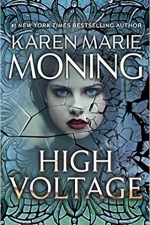
High Voltage: Fever Book 10
Book
Immortal Faerie and ancient feuds, secrets and sacrifices--a thrilling new chapter in the...
romance fantasy
